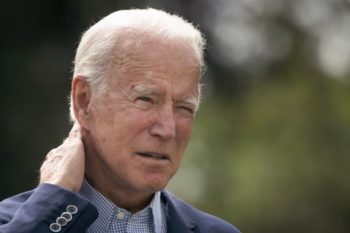
New York attorney Steven Donziger, in Ecuador, obtained a $19 billion judgment against Chevron in favor of 47 indigenous people from Ecuador’s backwoods to compensate them for oil exploration pollution.
But that supposed “justice” was discovered to be injustice, the result of lying, bribery and fraud. While an unbelievable story for a movie, it is the truth as found by a respected New York federal judge. Here is how it was uncovered.
Chevron started the New York lawsuit seeking an injunction against Donziger, to prevent enforcement of the Ecuadorian judgment. Chevron’s heart must have dropped when Judge Lewis Kaplan was assigned as judge.
Well-known for hard work and intelligence, Kaplan’s background suggested sympathy for the underdog, a category into which these Ecuadorian plaintiffs fit. Appointed by President Clinton, he was previously a trustee of the Lawyers’ Committee For Civil Rights Under Law.
What Judge Kaplan found from 68 witnesses and thousands of exhibits caused him to do justice by enjoining Donziger from collecting on the judgment. In a 485-page opinion detailing Donziger’s fraud, Kaplan aptly described the evidence as “extraordinary,” creating a picture that “normally comes out of Hollywood.”
According to Kaplan, the real-life plot included “coded emails” describing Donziger’s “private interactions with and machinations directed at judges and a court-appointed expert”; his “payments to a supposedly neutral expert out of a secret account”; “ex parte meetings with judges”; and inducing a criminal indictment of two Ecuadorian lawyers defending Chevron “force (Chevron) to the table for a possible settlement,” as Donziger later explained.
The Donziger team’s criminality was best summarized by one Ecuadorian colleague who admitted that, if just part of their actions were disclosed, “apart from destroying the proceeding, all of us, your attorneys, might go to jail.”
Kaplan’s conclusion: The judgment was obtained on “fraudulent evidence,” including Donziger’s “coerc(ing) one judge to appoint” as a supposedly impartial damages evaluator “a man whom Donziger hand-picked and paid,” after which Donziger secretly paid a Colorado consulting firm to write the expert’s report, “falsely presented the report as the work of the … supposedly impartial expert and told half-truths or worse to the U.S. courts … to prevent exposure of that and other wrongdoing.”
Completing the fraud, Donziger and his supporting team wrote the Ecuadorian judge’s judgment themselves “and promised $500,000 to (the) judge to rule in their favor and sign that judgment” making Chevron pay $19 billion.
Judge Kaplan demonstrated his caring for the Ecuadorian poor by noting, “improvement of conditions of the residents (in that area of Ecuador) appears to be both desirable and overdue” and assuming that pollution had occurred for which Chevron might be liable — if Donziger had allowed for an honest trial.
Ultimately more important to him was the honesty and fairness of the American justice system. Kaplan put it beautifully: “Justice is not served by inflicting injustice. The ends do not justify the means. … The wrongful actions of Donziger … would be offensive to the laws of any nation that aspires to the rule of law.”
Donziger has appealed to the Court of Appeals, where the trial judge’s “finding of fact” is entitled to special weight and “shall not be set aside unless clearly erroneous.” Donziger thus recognizes that Kaplan’s factual findings of Donziger’s corruption of the justice system cannot be reversed. Hence, Donziger’s appeal rests on meritless technical grounds.
Donziger’s appeal that Chevron had no “standing” to press its case — requiring a showing of injury — ignores that Chevron would be injured if required to pay the judgment.
Given undisputable evidence of bribery, fraud, extortion, money laundering, witness tampering and misrepresentations that infect the Ecuador court decision, Donziger’s claim — that American justice must blindly respect a foreign court’s decision — would convert our courts to an implementer of proven injustice.
Donziger argues that the RICO statute — the Racketeer Influenced and Corrupt Organizations Act, which Chevron invoked against him — does not apply. While RICO was designed to attack the Mafia, the Supreme Court recognizes that it, as written, was not so limited.
Kaplan held that Donziger “formulated and conducted a scheme to victimize a U.S. company through a pattern of racketeering,” with “substantial conduct in the United States,” including financing his scheme through selling shares in any recovery.
Donziger has protested Chevron’s seeking an injunction under RICO. Injunctions may not have previously been used under RICO, but that’s no reason to deny one when it could prevent Donziger’s profiting from corrupt activities in Ecuador by misusing American courts.
Justice was done by Judge Kaplan. Unless the appellate court is blind to injustice, the decision will be affirmed.
• Walpin, formerly a federal prosecutor and then criminal defense counsel, served as inspector general of a federal agency.















